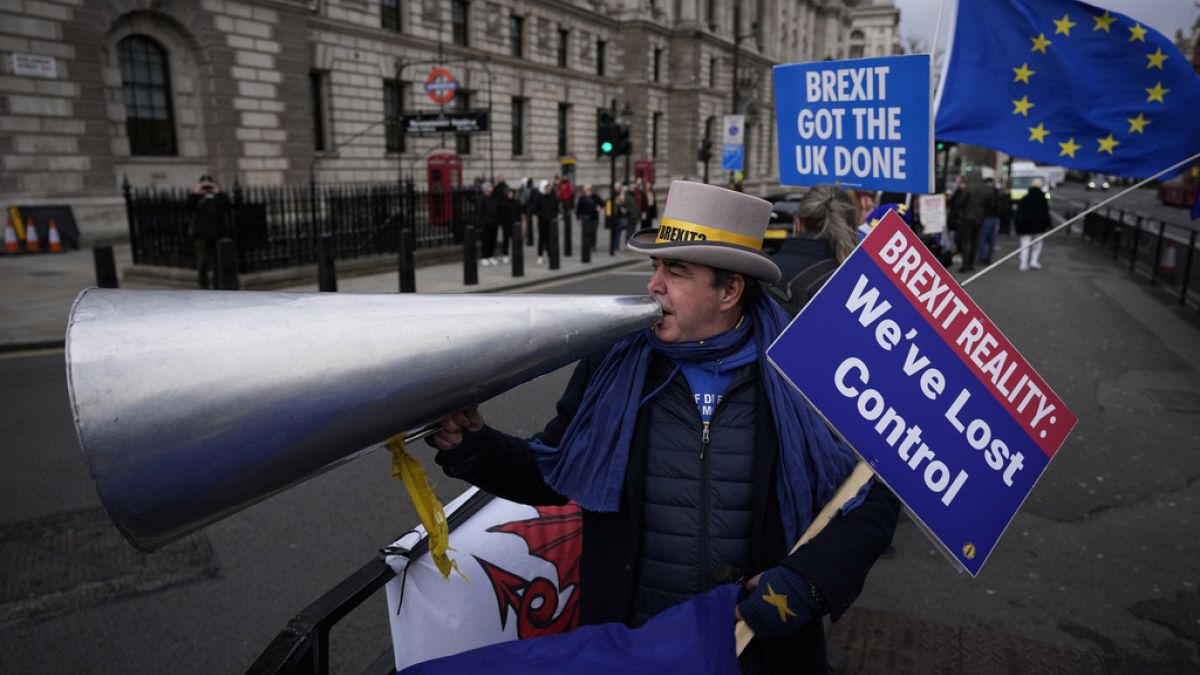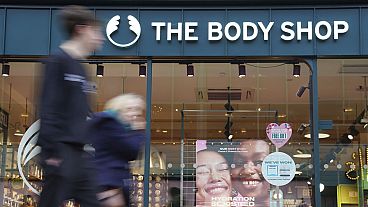Immigration from EU countries has fallen sharply while non-EU immigration has risen. However, EU immigrants benefited the economy because they were working, while the current influx of immigrants is primarily made up of non-working students.
The UK's departure from the European Union has been a costly business, leaving it with lower growth and higher inflation, according to Goldman Sachs.
UK real GDP has fallen short of economic growth in comparable countries by about 5% since the referendum, the US investment bank's latest report revealed.
Admittedly, not all of the UK's growth underperformance could be attributed to Brexit, the report pointed out, saying the UK economy had also taken a strong hit from the COVID-19 pandemic and the subsequent energy crisis resulting from the Russia-Ukraine war.
Even so, using a "Doppelgänger" method of statistical evaluation, where the economies of similar countries are looked at and compared, the 5% figure attributed to Brexit seems to fit with other earlier studies, the report said.
Its findings revealed that, first, UK goods trade had underperformed compared with other advanced economies by around 15% since the 2016 referendum which saw the United Kingdom vote to leave the EU.
Secondly, the report said, business investment had been weak since 2016, falling notably short of the pre-referendum trend.
Immigration since 2016 has shown an unexpected rise
Thirdly, it explained that although immigration from the EU had dropped sharply, non-EU immigration has risen significantly, with more people arriving in the UK to study, rather than find work and provide a boost to the labour market.
"Brexit has clearly affected immigration flows into the UK. In particular, net immigration from the EU peaked at over 300,000 per year in the year to 2016Q2 but is now negative," the report said.
"Much of this decline has been driven by fewer people coming into the UK for work. That said, total immigration into the UK is now higher than before the EU referendum, reflecting higher immigration from outside the EU.
"EU immigrants tended to have high labour market participation rates, as many of them entered the UK specifically to work. By contrast, many recent arrivals are students, meaning that immigration may be playing less of a role in boosting labour supply than the headline numbers suggest.
"Moreover, the latest ONS projections suggest that net migration numbers will fall back somewhat the coming years, and the decline may be accelerated by the recently announced increases in the salary threshold for skilled workers."
What's in store for the future?
Future prospects for a post-Brexit Britain still seem hazy. Goldman Sachs believes that new trade agreements with non-EU countries might improve the UK's prospects but points out many of the post-Brexit agreements are similar to pre-Brexit ones. It cites a free-trade agreement with Australia as being described as of 0.08% value to the UK economy.
It also points out that there are no major trade deals currently in the pipeline. Deals with the US and India remain unclear.
The report concludes: "While we see a number of areas for potential closer cooperation, the direction will depend importantly on the next government's plans and priorities.
"Comments by Prime Minister Sunak suggest that major changes under a new Conservative government would be unlikely.
"Labour leader Starmer has pledged to use the 2025 review of the TCA (Trade and Cooperation Agreement) to push for closer relations ... but ruled out rejoining the customs union, or the single market."



